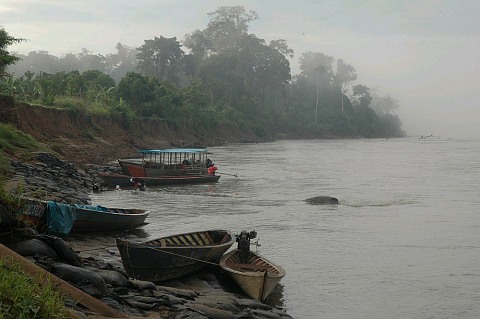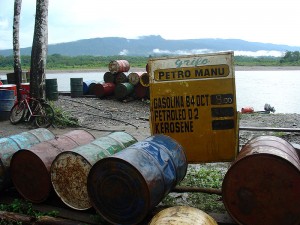 One of the hardest things about being a freelance writer is seeing a great story— the kind of story you’ve always dreamed about writing—slip through your fingers. Your editors fail to see the beauty or the tragedy. No one shares your obsession; no one wants to put you on a plane to Miami or Lima or Mobasa, say, and pay for expenses while you throw yourself into the reporting. The pitch falls flat, eyes look away in embarrassment, and a half beat later, a kindly question. What else have you got?
One of the hardest things about being a freelance writer is seeing a great story— the kind of story you’ve always dreamed about writing—slip through your fingers. Your editors fail to see the beauty or the tragedy. No one shares your obsession; no one wants to put you on a plane to Miami or Lima or Mobasa, say, and pay for expenses while you throw yourself into the reporting. The pitch falls flat, eyes look away in embarrassment, and a half beat later, a kindly question. What else have you got?
Thirty years of freelancing and I can pretty much remember each and every one of these failures, these lost stories. They continue to dog me, and I sometimes think that this will be the last thing on my mind when I die. It won’t be my life flashing in front of me; it will be stories, particularly these stories, the ones that never saw light of day.
The most recent was a story I dearly wanted to write about Madre de Dios, once a vast swathe of tropical forest near the headwaters of the Amazon. As I wrote here last November, biologists once extolled the wonders of Madre de Dios, with its spectacled bears and giant catfish and river otters and its butterflies and birds, lots of birds, even a species that had a call like a submarine’s sonar. Then illegal mining interests discovered Madre de Dios and the gold in its soil: today tens of thousands of illegal miners have turned Lothlórien into Mordor—chainsawing forest, dumping mercury into the ground, and trafficking drugs and naïve young Andean women to the “prostibars” in mining towns.
My editors couldn’t see the news value in this story. But despite all the rejections, I still thought this story needed to be told, particularly in North America. Now, thanks to a young environmental engineer and writer, Katy Ashe, Madre de Dios is getting some long overdue attention. Ashe managed to inveigle her way into the dangerous mining camps of Madre de Dios and she writes about them in a masterfully reported article for Mongabay.com.
Ashe has a sharp pair of eyes. Infants in the camps, she writes, “splash in the mercury-contaminated mining ponds as children throw rusted metal objects at each other. I grab a jagged, rusty, iron hoop from a toddler boy, only to be reprimanded by his mother for stealing his toy… This child lives in a world where mercury is often viewed as an acceptable laxative—the incredible weight of mercury essentially pushes everything out of your digestive tract.”
 The situation in Madre de Dios could scarcely be more dire: consider for a moment all that mercury slowly seeping into the headwaters of the Amazon and all those people living downstream. So I am grateful that Ashe took the chances she did in order to write about this catastrophe. Note how she only mentions these dangers in passing, in two brief, self-deprecating sentences. “I was lucky to gain access to the illegal mining camps, to get past the armed guards and chained entries intended to keep all non-miners away,” she writes. “Every other researcher and journalist that I had heard of attempting the same had been shot.”
The situation in Madre de Dios could scarcely be more dire: consider for a moment all that mercury slowly seeping into the headwaters of the Amazon and all those people living downstream. So I am grateful that Ashe took the chances she did in order to write about this catastrophe. Note how she only mentions these dangers in passing, in two brief, self-deprecating sentences. “I was lucky to gain access to the illegal mining camps, to get past the armed guards and chained entries intended to keep all non-miners away,” she writes. “Every other researcher and journalist that I had heard of attempting the same had been shot.”
A good writer, of course, makes his or her luck. Ashe made hers with courage and resourcefulness.
This is one less lost story. I’ll sleep better tonight.
Upper photo of Madre di Dios courtesy Marcin Nowak. Lower photo of petrol station on Alto Madre di Dios, courtesy Martin St. Amant.
Heather, this is beautiful. And you’ve given me a vision of my own final moments, too — I wonder if we should start an anthology of lost stories while we’re all still alive? It would just be a series of ledes and outlines, I suppose, since for the most part we never had the chance to report the pieces out.
It also strikes me that Katy is the anti-Mike Daisey. He claimed to have seen more than he did to tell the story he wanted to; Katy went deeply to see more than anyone else had.
Thanks so much Tom. And what a beautiful idea that is–an anthology of lost stories. I’m definitely up for that–asking writers to contribute one or two of their favorites. It would be wonderfully therapeutic to see them come to life in print.
And I agree about Katy. Sadly, good hard reporting like hers tends to get less ink than the fabrications of Daisey.
Oh, the agony of the lost story – thanks for putting it into words, Heather. I’m glad that this one, at least, was found again.
David Dobbs was talking about compiling a “Best Unpublished American Science Writing” compilation for lost stories.
Of course, the joy of a blog is that you can damn well write that lost story and yah boo sux to anyone who didn’t commission it. Here’s mine: http://blogs.discovermagazine.com/notrocketscience/2011/06/08/the-renaissance-man-how-to-become-a-scientist-over-and-over-again/
(Also, Smithsonian published a Madre de Dios story earlier this year. http://www.smithsonianmag.com/people-places/The-Devastating-Costs-of-the-Amazon-Gold-Rush.html I felt for you when I saw it, Heather)
Holy shit, Ed. I can’t believe that no one commissioned your Erez Lieberman Aiden profile. The guy’s hugely fascinating–he charts the evolution of irregular verbs in the English language from Beowulf to Harry Potter, invents culturomics and gives his son the middle name of Galileo. How could any editor pass this one by, I ask myself.
You’re absolutely right about the beauty of blogging–putting all these lost souls on the page, or rather the screen.
The worst words in the English language are “It’s too late”. By writing this, you have not only opened a window for those who might care to take a peek and be better for it, but you’ve also avoided becoming a casualty of those words yourself. As they say in Baltimore: “Who woulda thunk” the day would come when solving the labyrinth meant shifting focus from being deemed print-worthy by a few experts, to being hailed as pixel-worthy by the throngs in cyberspace? Either way, thank you for writing it. I’m making as many people as I can aware that it exists, so that they too can choose to take a peek of their own.
Thanks very much, Luis. The world of the pixel certainly does open up many,many wonderful possibilities for writers, particularly we thwarted ones!